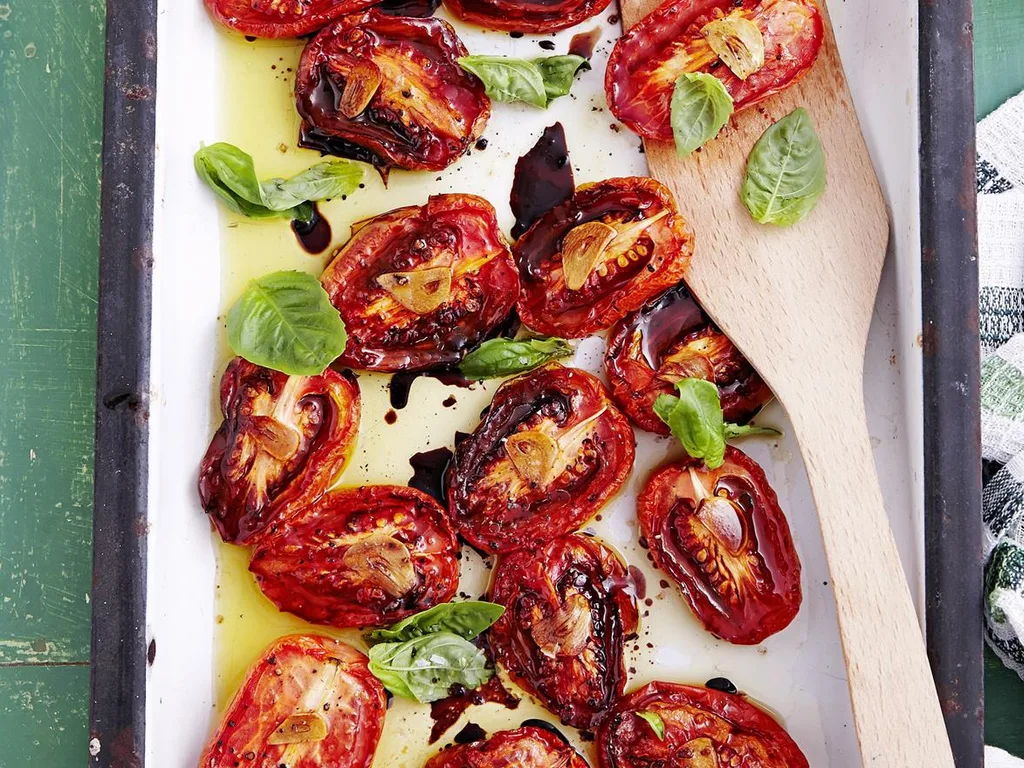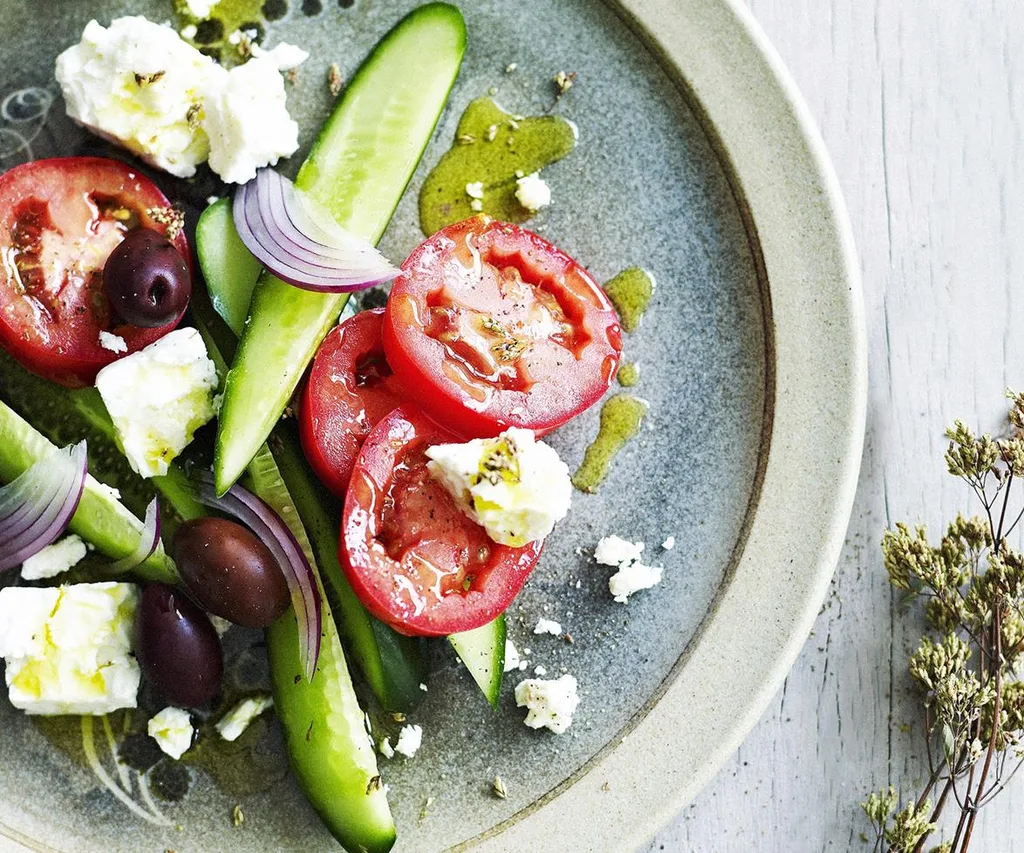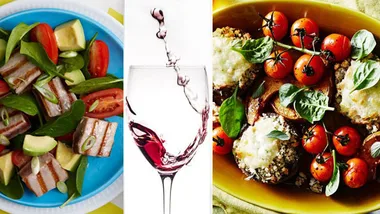“A Mediterranean diet boosts the body’s antioxidant defence system and protects against free radicals which accelerate ageing and can lead to chronic diseases,” says Dr Catherine Itsiopoulos, dietitian and author of The Mediterranean Diet Cookbook.
It’s more than a healthy eating plan – the diet is recognised by UNESCO for its intangible cultural heritage. It’s a way of life where, traditionally, meals were prepared from scratch and eaten slowly in the company of loved ones.
Taking time to savour your food encourages mindful eating, which is just as important as what you eat, advises Dr Itsiopoulos. And it’s the traditional ingredients used in Mediterranean cooking that deliver the biggest nutritional benefits. Here, we show you how to get the balance right.

Make your own slow-roasted olive oil tomatoes with this delicious recipe from our friends at Food To Love.
Extra virgin olive oil
Bitter and peppery extra virgin olive oil doesn’t just help make food taste delicious, it enhances the health benefits too. “Extra virgin olive oil is a medicinal food,” says Sue Radd, director of the Nutrition and Wellbeing Clinic. “When combined with a Mediterranean diet the oil is linked with a lowered risk of breast cancer, stroke, diabetes and heart disease.
It’s known to lower blood pressure and ‘bad’ LDL cholesterol, and reduce the spike in your blood sugar after a meal,” she explains. Radd recommends consuming three tablespoons a day in your cooking, on bread, or drizzled over salads and cooked vegetables. She also suggests using it instead of margarine, butter, canola oil and sunflower oil.
Wholegrains
Grains are a very important part of the Mediterranean diet, but we’re talking about the type of fibre-rich unrefined grains that keep your gut and digestion healthy, says Radd. Barley, oats and freekeh are used in breakfast cereals and salads or ground into flour and made into loaves of bread.
And as Radd explains, no meal is complete without wholegrain bread. Traditionally, “bread was a column of the Mediterranean diet. They ate it for breakfast, lunch and dinner because it fills you up.”
Fruits and vegetables
Plant-based foods are used in abundance and meals are usually centered on vegetables that are in season such as eggplant or zucchini. “Fruits and vegetables are rich in vitamin C, which is essential for immunity, and carotenoids, which are important in the prevention of cancer and chronic diseases,” says Dr Itsiopoulos.
“Green leafy vegetables are rich in folate which is important in preventing heart disease,” she adds. These also contain high levels of phytonutrients and dietary nitrate that protect your brain, eyes and blood vessels, explains Radd. Four-fifths of your plate should contain vegetables, legumes and wholegrains, advises Dr Itsiopoulos, so think of meat as an accompaniment.

Eat a vegetarian diet twice a week by replacing animal products with legumes and choose produce in many colours for a healthy mix of antioxidants.
Fish
Fish provides protein, selenium, which has antioxidant properties, zinc, iodine and vitamins A and D. Oily fish and shellfish are also rich in omega-3 fats, which are important in the prevention of heart disease, dementia and Alzheimer’s.
According to Radd, the traditional Mediterranean diet includes small fish that could be caught easily like sardines, anchovies, bream, mullet or mackerel. You can get the benefits by including seafood in your diet twice a week.
Red wine
Most family members will have a small glass of red wine with their main meal in the Mediterranean culture.
“Wine has been studied for its antioxidant ingredients like resveratrol, which can reduce LDL cholesterol and help prevent atherosclerosis, a disease of the arteries which can lead to a heart attack,” says Dr Itsiopoulos. To reap the benefits she recommends having no more than one or two glasses per day.
Dairy
Traditionally, adults did not drink fresh milk, but you’ll find fetta, soft, unripened white cheeses and fermented dairy foods such as yoghurt are on the Mediterranean menu.
These foods should be enjoyed moderately and Radd recommends eating no more than two serves per day. Dairy products are typically made from sheep’s and goat’s milk so choose these varieties if you can.
Herbs and spices
Fresh or dried herbs and spices enhance the flavour of your dishes, and also increase the antioxidant content and provide anti-inflammatory benefits when eaten with vegetables, says Radd.
“Thyme, parsley and rosemary are popular, and oregano is used in salads and in cooking.”
Consult your trusted GP before making changes to your diet.


